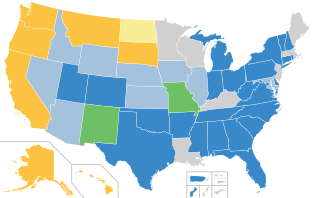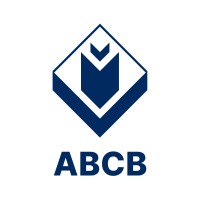
Plumbing is any system that conveys fluids for a wide range of applications. Plumbing uses pipes, valves, plumbing fixtures, tanks, and other apparatuses to convey fluids. Heating and cooling (HVAC), waste removal, and potable water delivery are among the most common uses for plumbing, but it is not limited to these applications. The word derives from the Latin for lead, plumbum, as the first effective pipes used in the Roman era were lead pipes.

A building code is a set of rules that specify the standards for constructed objects such as buildings and non-building structures. Buildings must conform to the code to obtain planning permission, usually from a local council. The main purpose of building codes is to protect public health, safety and general welfare as they relate to the construction and occupancy of buildings and structures — for example, the building codes in many countries require engineers to consider the effects of soil liquefaction in the design of new buildings. The building code becomes law of a particular jurisdiction when formally enacted by the appropriate governmental or private authority.
An elevator consultant is someone who specializes in the design, testing and maintenance inspection of elevators, escalators, moving walkways and many other conveyances that move people. They are not to be confused with elevator mechanics. Consultants do not normally perform work on conveyances. Some elevator consultants may also work as private elevator inspectors. Some jurisdictions may accept independent third party inspectors for certified inspections while others may employ their own inspectors.
The International Code Council (ICC) is a nonprofit standards organization that creates the International Building Code (IBC), a model building code for housing. The IBC has been adopted for use as a base code standard by most jurisdictions in the United States.

Designated as an American National Standard, the Uniform Plumbing Code (UPC) is a model code developed by the International Association of Plumbing and Mechanical Officials (IAPMO) to govern the installation and inspection of plumbing systems as a means of promoting the public's health, safety and welfare.
To comply with the Building Act 1984 and the subsequent statutory instruments known as the Building Regulations, Building regulations approval is required to construct certain structures in England and Wales. Construction projects falling into this category are sometimes referred to as "notifiable", however this is different from the "notification" (which may also be required under the Construction Regulations 2015, which seeks to monitor health and safety in construction projects.
A building control body is an organisation authorised to control building work that is subject to the Building Regulations in England and Wales (similar systems are provided in Northern Ireland, and in Scotland where the term 'building standards' is used. Such regulations or standards are also known as building codes in other parts of the world.

A building engineer is recognised as being expert in the use of technology for the design, construction, assessment and maintenance of the built environment. Commercial Building Engineers are concerned with the planning, design, construction, operation, renovation, and maintenance of buildings, as well as with their impacts on the surrounding environment.
Designated as an American National Standard, the Uniform Swimming Pool, Spa and Hot Tub Code (USPSHTC) is a model code developed by the International Association of Plumbing and Mechanical Officials (IAPMO) to govern the installation and inspection of plumbing systems associated with swimming pools, spas and hot tubs as a means of promoting the public's health, safety and welfare.
Construction law is a branch of law that deals with matters relating to building construction, engineering, and related fields. It is in essence an amalgam of contract law, commercial law, planning law, employment law and tort. Construction law covers a wide range of legal issues including contract, negligence, bonds and bonding, guarantees and sureties, liens and other security interests, tendering, construction claims, and related consultancy contracts. Construction law affects many participants in the construction industry, including financial institutions, surveyors, quantity surveyors, architects, carpenters, engineers, construction workers, and planners.
Uniform Codes are codes of practice developed and maintained by the International Association of Plumbing and Mechanical Officials (IAPMO) using the American National Standards Institute's (ANSI) accredited consensus development process working on a three-year cycle. This process brings together volunteers representing a variety of viewpoints and interests to achieve consensus.
IAPMO Standards are the plumbing and mechanical standards of the International Association of Plumbing and Mechanical Officials (IAPMO). For more than thirty years, IAPMO’s standards-developing efforts have primarily focused on plumbing product standards. This concentration was primarily due to IAPMO members’ expertise from more than 50 years of writing and updating the Uniform Plumbing Code (UPC). IAPMO is an American National Standards Institute (ANSI)-recognized Standards Development Organization (SDO).
IAPMO R&T was started in 1936 as a third-party listing agency specializing in plumbing and mechanical products. IAPMO R&T is accredited to certify products that meet the criteria of the Uniform Plumbing Code, Uniform Mechanical Code, Uniform Solar Energy Code, Uniform Swimming Pool, Spa and Hot Tub Code and other nationally recognized codes and standards in North America.
A plumbing code is a code that provides regulations for the design, installation and inspection of building plumbing and sanitary systems. In the United States, jurisdictions enact their own codes, some of which are based upon model plumbing codes. The most widely adopted plumbing code in the United States is the International Plumbing Code published by the International Code Council (ICC). This code is also used as the basis for the plumbing codes of some other countries. Another model plumbing code published and utilized widely across the United States is the Uniform Plumbing Code, published by the International Association of Plumbing and Mechanical Officials (IAPMO), a multinational operation with offices in 13 nations. IAPMO codes are developed using ANSI consensus development procedures. This code serves as the basis for the national plumbing codes in India and Indonesia.
The California Building Standards Code is the building code for California, and Title 24 of the California Code of Regulations (CCR). It is maintained by the California Building Standards Commission which is granted the authority to oversee processes related to the California building codes by California Building Standards Law. The California building codes under Title 24 are established based on several criteria: standards adopted by states based on national model codes, national model codes adapted to meet California conditions, and standards passed by the California legislature that address concerns specific to California.
The International Association of Plumbing and Mechanical Officials (IAPMO) coordinates the development and adaptation of plumbing, mechanical, swimming pool and solar energy codes to meet the specific needs of individual jurisdictions both in the United States and abroad.
The Uniform Mechanical Code (UMC) is a model code developed by the International Association of Plumbing and Mechanical Officials (IAPMO) to govern the installation, inspection and maintenance of HVAC and refrigeration systems. It is designated as an American National Standard.
Designated as an American National Standard, the Uniform Solar, Hydronics and Geothermal Code (USHGC) is a model code developed by the International Association of Plumbing and Mechanical Officials (IAPMO) to govern the installation and inspection of solar energy, hydronic heating/cooling systems, and geothermal energy systems as a means of promoting the public's health, safety and welfare.

The National Construction Code (NCC) is a set of minimum requirements for buildings in Australia. The requirements concern the aspects of health, safety, accessibility, amenity and sustainability of the types of buildings that the code applies to. The Code is published by the Australian Building Codes Board (ABCB) in service to the Australian Federal Government as well as State and Territorial governments of Australia.

The Australian Building Codes Board (ABCB) is a body that writes Australia's standardized building requirements, including the National Construction Code (NCC), WaterMark, and CodeMark. The ABCB is part of a joint endeavour by the Commonwealth, state and territory governments, and the country's plumbing and building industries.





